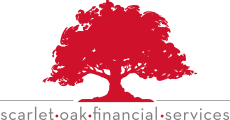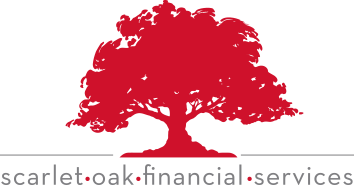In 2021, the average American has $90,460 in debt; this number includes home loans, credit cards, student loans, etc.[1] That’s a lot. Given the median income for a family was $79,900 per year in 2021, and the median for families in the metro was $82,800 and dipped dramatically for those outside a metro city radius to $63,400 per household.[2] There are whole industries that have grown around debt – consolidation, transfer, collection, education, and relief. But what makes a particular debt a good choice and another a bad choice? Debt can be framed as if used to gain an asset or increase your net worth, then it is good debt, but if the borrowed money is used for something that doesn’t add net worth value or depreciates, it is bad.
But what about the debt taken for a degree that you aren’t using but brought you a lot of joy and gained you some lifelong friends? Does a student loan go from a bad debt to a good one only once you use it fully in the workplace? Or the car loan for a car that loses value yearly but gets you to a job you love that earns you a decent wage? Now, what if your job is soul-crushing and doesn’t financially add to your net worth; does that auto loan suddenly become a bad debt? Like many financial tools, debt only finds its worth within the context of a person’s life. The human that only makes financial decisions purely on their net worth probably doesn’t exist. But this isn’t to say that there aren’t guidelines that might help your decision to use borrowed money.
Is there a need?
Debt accumulation can occur for reasons as varied as a medical procedure to improve your health to gambling losses during a football season. Most people would agree that a debt taken for your wellbeing fills a greater need than a fantasy football season gone wrong. Any borrowed money is money that you will probably pay interest on and most certainly will affect how you can use your money in the future. Debt will most likely be more expensive than using the money you have already earned and saved. Plus, saved money could be making you interest or investment gains that aren’t possible when money that could be saved and invested is being used for debt repayment.
When using borrowed money, it should be fulfilling a need that improves your future. Of course, everyone has different thoughts on things needed in their life based on personal history, income, earning potential, values, lifestyle, and even family or cultural context. But by keeping in mind this need-based structure, you can help use debt as a tool to improve your life rather than a burden in the future.
What are you giving up?
Your money is finite- bound by your income parameters, whether earned income, passive income, or investment income. By using the money towards debt repayment, you are not using it for something else- like a down payment fund, retirement accounts, an emergency fund, vacation funds, living expenses, etc. If you are giving up something that would be important for your financial goals or lifestyle, like early retirement, travel, owning a business, or another priority to you, accruing a debt might not be the right choice for you even if it is traditionally a debt that could be considered a net worth builder like a home.
Is it proportional?
What you can borrow and what you should borrow are often different, especially if you have good or excellent credit. Getting pre-approved for a home or car that would affect your other financial goals should be carefully considered. For example, if you plan to take out a mortgage, would it, plus utilities and monthly home expenses, exceed 30% of your gross income?[3] Would a car purchase be more than 50% of your annual income?[4] These are two guidelines that financial experts feel keep people in line with their savings and retirement goals without overspending on debt repayment. Looking at debt in proportion to your income helps inform your use of it.
Are you able to pay it back?
While nothing is guaranteed, jobs are lost, pandemics happen, and people must restart their lives because of sudden life changes. But is it reasonable to assume that you will be able to pay your debt off? Especially if it is unsecured debt like a credit card or personal loan? Does your earning path align with the debt you are taking out today? Are you capable, wanting, and willing to stay in your current career or income level to ensure that the debt is paid? Missed and late payments make significant hits to your credit score. In addition, chapter 7 or chapter 13 bankruptcies will negatively affect your credit for 7-10 years.
This realistic look at repayment also can be adapted to student debt and loans. Understandably college degrees aren’t only chosen through the lens of the salary that they might net when the graduate enters the workforce. Looking at them in ratio to earning potential might be helpful to determine which colleges provide a good start without crippling debt. The average private nonprofit four-year institution’s yearly tuition and fees are $37,650. The average Ivy League tuition and fees nearly double to $78,417 per year on average.[5] 4 years of classes, if most of it weren’t covered by grants and scholarships, would be a heavy burden for someone entering a field at the top level of pay was $40,000.
Often debt is framed as good or bad. But is that even helpful? Does it even matter if they are good or bad at a certain point if too much money is owed not to be overwhelming? Maybe a better view of the debt is neutrality- understanding how it works within your life to achieve your goals. Debt can be a tool to help navigate life. A student loan could help someone find a career they are passionate about and allow them to provide for themself and their family. A mortgage could allow someone to enter retirement with their most significant living expenditure paid off. Even credit card debt after a divorce could let someone be in a healthier and happier place.
Most financially stable people learned those financial skills from making mistakes- taking out too much debt, buying frivolous things on credit cards, not budgeting their money. And in the end, whether good, bad, or neutral, debt will need to be paid, or the consequences of default reckoned with, so a long-term strategy and personal guidelines need to be established to manage your debt accumulation.
Want to sit down and get some speak with us about your debt? Scarlet Oak Financial Services can be reached at 800.871.1219 or contact us here.
Sources:
https://www.debt.org/advice/good-vs-bad/
https://www.thebalance.com/reasons-debt-is-bad-960048
https://www.experian.com/blogs/ask-experian/how-does-filing-bankruptcy-affect-your-credit/
[1] https://www.cnbc.com/select/average-american-debt-by-age/
[2] https://www.huduser.gov/portal/datasets/il/il21/Medians2021.pdf
[3] https://www.cnbc.com/2018/06/06/how-much-of-your-income-you-should-be-spending-on-housing.html
[4] https://www.ramseysolutions.com/insurance/new-car-vs-used-car
[5] https://www.thebalance.com/can-you-afford-an-ivy-league-education-for-your-child-795012
This material has been prepared for informational purposes.



